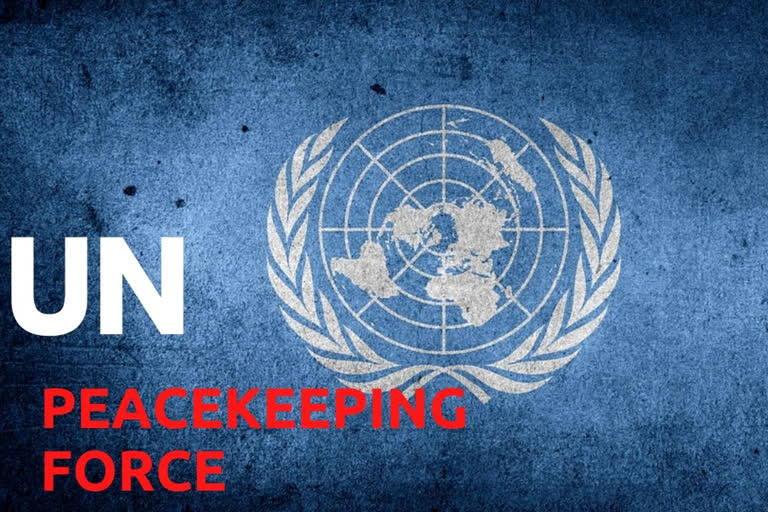United Nations: India, which is among the largest troop contributors to the UN peacekeeping force, has voiced concern over the delay and non-payment of funds to contributor countries and closed missions, terming it as "bad faith" if the reserves are used for other purposes.
India has been among the few countries to have fully paid its dues to the UN on time. The UN, however, owed India USD 38 million, which is among the highest it has to pay to any country, for peacekeeping operations as of March 2019.
Highlighting India's priority issues for deliberations in the Special Committee on Peacekeeping Operations, Permanent Representative Ambassador Syed Akbaruddin said the financial situation of the UN Peacekeeping, particularly the non-payment or delayed payment of arrears to the Troop/Police Contributing Countries (T/PCCs) remains a cause of concern.
While some ameliorative measures, introduced last year, did provide a temporary reprieve, he said the dismal practice of delaying payments to T/PCCs seems to be making a come back.
He also highlighted the festering matter of payments for so called closed peacekeeping missions, saying non-payment of peacekeeping dues, for years after the end of peacekeeping missions, ensures that there is no closure to this matter.
Read more: Important for India, Pak to de-escalate, militarily and verbally: UN chief
Using funds of such peacekeeping operations for other requirements, while payments for peacekeeping remain, is not only bad accounting practice, but also tends to be interpreted as bad faith, Akbaruddin said.
The Indian envoy also called for an institutionalization of an approach, saying it is essential that all key actors are associated in a consistent and predictable manner in the decision-making matrix.
He voiced concern that in practice, we have not moved beyond perfunctory efforts. We need to agree on practical measures to institutionalize engagement and cooperation between the TCCs/PCCs, the Security Council and the Secretariat.
He also asserted that there can be no substitute for professional competence of those engaged in all aspects of UN peacekeeping. The performance of peacekeeping operations should be measured in relation to political and operational realities, priorities set for implementing mandate, adequacy and appropriateness of resources.
The phenomenon that exist today of mandates following budgets is not sustainable. Budgets should follow mandates, he said.
India called for assessment of instances of reported under-performance, saying such assessment needs to examine whether there were units available at higher levels in the Peacekeeping Capability Readiness System (PCRS) that were overlooked during selection.
Also read: UN chief on first official visit to Pakistan
It also needs to be examined whether caveats have impacted performance; whether poor performance is due to lack of resources, including equipment; or whether the mandate, including guidelines, were not clear, resulting in unsatisfactory implementation.
Honest assessment and feedback is essential to have an effective accountability system. Assessing performance without determining accountability will leave us open to repeating errors, Akbaruddin said.
He voiced criticism that established mechanisms for discussion and agreement seem to be hollowing out, noting that there is a visible reluctance to revise the reimbursement parameters, even after following the agreed revision procedures.
During the recent discussions at the Contingent Owned Equipment (COE) Working Group, there was no consensus amongst key partners to increase the COE reimbursement rates, while the available National Cost Data estimates clearly suggested an upward revision of the scales. Akbaruddin said the triennial COE Working Group has met seven times so far during nearly 20 years.
The highest increase agreed so far was in 2001 (7.43 per cent), during the first meeting and the last agreed increase was in 2017, a mere 0.6 per cent.
However, no consensus was reached in January this year, which is a throwback to 2004.
It is not a good augury to avoid data based decision making on technical issues such as equipment costs. Let us not forget, appropriate equipment is a must for effective mandate implementation, safety and security of personnel, protection of civilians and overall performance of the mission, he said.
Voicing support for The Action for Peacekeeping (A4P), an initiative of UN Secretary-General Antonio Guterres, Akbaruddin said the initiative is a commonly agreed template to improve the efficiency and effectiveness of peacekeeping within the contours of shared understandings.
He pointed out that the areas of the A4P that require effective follow-up and implementation include inclusion of all stakeholders and all phases of peacekeeping operations in the Performance and Accountability Mechanism, development of a common culture of UN Peacekeeping, without the privileges of caveats, enhancing participation of women by prioritising offers of women peacekeepers and medical mapping of all missions comprehensively so that existing gaps are attended to.
Also read: Russia, Ukraine to revive peace process amid little progress
(With inputs from PTI)



